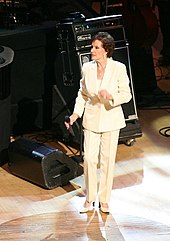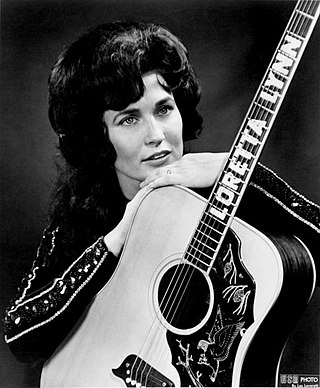
Loretta Lynn was an American country music singer and songwriter. In a career spanning six decades, Lynn released multiple gold albums. She had numerous hits such as "Hey Loretta", "The Pill", "Blue Kentucky Girl", "Love Is the Foundation", "You're Lookin' at Country", "You Ain't Woman Enough", "I'm a Honky Tonk Girl", "Don't Come Home A-Drinkin' ", "One's on the Way", "Fist City", and "Coal Miner's Daughter". The 1980 musical film Coal Miner's Daughter was based on her life.
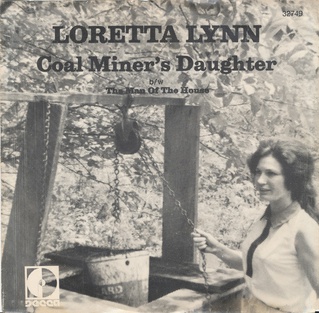
"Coal Miner's Daughter" is a song written and recorded by American singer-songwriter Loretta Lynn. Considered Lynn's signature song, it was originally released as a single in 1970 and became a number one hit on the Billboard country chart. It was later released on an album of the same name. Produced by Owen Bradley, the song tells the story of Lynn's coal-mining father in rural Kentucky during the Great Depression. Lynn, who was born in 1932 and experienced the Great Depression as a child, also describes her childhood and the circumstances she was raised in during those years.

"Help Me Make It Through the Night" is a country ballad written and composed by Kris Kristofferson and released on his 1970 album Kristofferson. It was covered later in 1970 by Sammi Smith, on the album Help Me Make It Through the Night. It has been covered since by many other artists from Tammy Wynette and Johnny Cash to Elvis Presley and Joan Baez.

Honky Tonk Angels is a collaborative studio album by Dolly Parton, Loretta Lynn and Tammy Wynette. It was released on November 2, 1993, by Columbia Records. The album was certified Gold by the RIAA on January 5, 1994, for sales of 500,000 copies.

You Ain't Woman Enough is the seventh solo studio album by American country music singer-songwriter Loretta Lynn. It was released on September 12, 1966, by Decca Records. It was Lynn's first No. 1 album on the US Billboard Hot Country Albums chart, as well as her first album to chart on the Billboard Top LPs chart.

Your Good Girl's Gonna Go Bad is a studio album by American country artist Tammy Wynette. It was released in May 1967 and contained ten tracks. The majority of the album was a collection of cover tunes Wynette recorded, including songs by George Jones, Loretta Lynn and Jeannie Seely. Several new songs were also part of the project. It was the debut studio album of Wynette's career and included two singles: "Apartment No. 9" and "Your Good Girl's Gonna Go Bad". The latter became Wynette's first chart success, climbing into the top five of the American country chart. The album itself reached the American country LP's chart in 1967. The album later received a positive review from AllMusic, which gave it a five-star rating.
"Rose Garden" is a song written in 1967 by American singer-songwriter Joe South. It was first recorded by Billy Joe Royal on his 1967 studio album Billy Joe Royal Featuring "Hush". Versions by South himself and Dobie Gray appeared shortly after the original. Gray's version became a minor hit in North America in 1969.
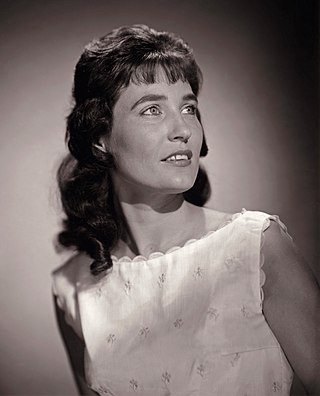
American country artist Loretta Lynn released 86 singles, two B-sides and 14 music videos. Her debut single was "I'm a Honky Tonk Girl" (1960) via Zero Records. Promoting the song with her husband by driving to each radio station, the effort paid off when it peaked at #14 on the Billboard Hot Country Songs chart. Arriving in Nashville, Tennessee, that year, she signed a recording contract with Decca Records. In 1962, "Success" reached the sixth position on the country songs chart, starting a series of top ten hits including "Wine Women and Song" and "Blue Kentucky Girl". She began collaborating with Ernest Tubb in 1964 and recorded four hit singles with him, including "Mr. and Mrs. Used to Be". Lynn's popularity greatly increased in 1966 when she began releasing her own compositions as singles. Among the first was "You Ain't Woman Enough " which reached the second position on the country songs list. She then reached the number one spot with "Don't Come Home A-Drinkin' " (1967). This was followed by "Fist City" (1968) and "Woman of the World " (1969).

The discography of American country music singer-songwriter Loretta Lynn includes 50 studio albums, 36 compilation albums, two live albums, seven video albums, two box sets and 27 additional album appearances. Briefly recording with the Zero label, she signed an official recording contract with Decca Records in 1961, remaining there for over 20 years The first under the label was her debut studio album Loretta Lynn Sings (1963). It peaked at number two on the Billboard Top Country Albums survey. Lynn would issue several albums a year with her growing success, including a duet album with Ernest Tubb (1965), a gospel album (1965), and a holiday album (1966). Her seventh studio album You Ain't Woman Enough (1966) was her first release to top the country albums chart and to chart within the Billboard 200. Other albums to reach number one during this period were Don't Come Home a Drinkin' (1967) and Fist City. Don't Come A'Drinkin would also become Lynn's first album to certify gold by the Recording Industry Association of America (RIAA).

"Success" is a song written by Johnny Mullins that was originally recorded by the American country artist Loretta Lynn. It was released as a single and became a major country hit in 1962. The song was among Lynn's first major hits as a recording artist. In 1992, the Irish singer-songwriter Sinéad O'Connor covered it as "Success Has Made a Failure of Our Home", which became an international hit.
"I'd Like to See Jesus " is a song written by Robert Seay and Dorval Lynn Smith that was originally recorded by American country artist Tammy Wynette. It was released as a single in 1978, reaching top 40 chart positions in both the United States and Canada. It was the first single off Wynette's 1978 album, Womanhood.
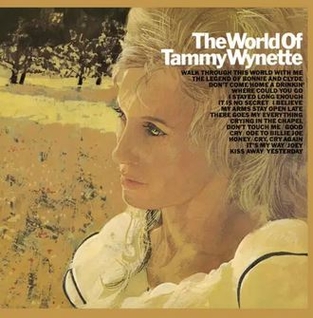
The World of Tammy Wynette is a compilation album by American country artist Tammy Wynette. It was released in May 1970 via Epic Records and contained 20 tracks of previously recorded material. The album comprised a series of recordings that originally appeared on Wynette's studio albums but were not issued as a singles. Some of the album's material were covers of songs first recorded by other music artists. It was originally issued on two separate discs and was later re-released in 2009. The World of Tammy Wynette appeared on both the Billboard country albums chart and the pop chart. The disc received mixed reviews from critics.



